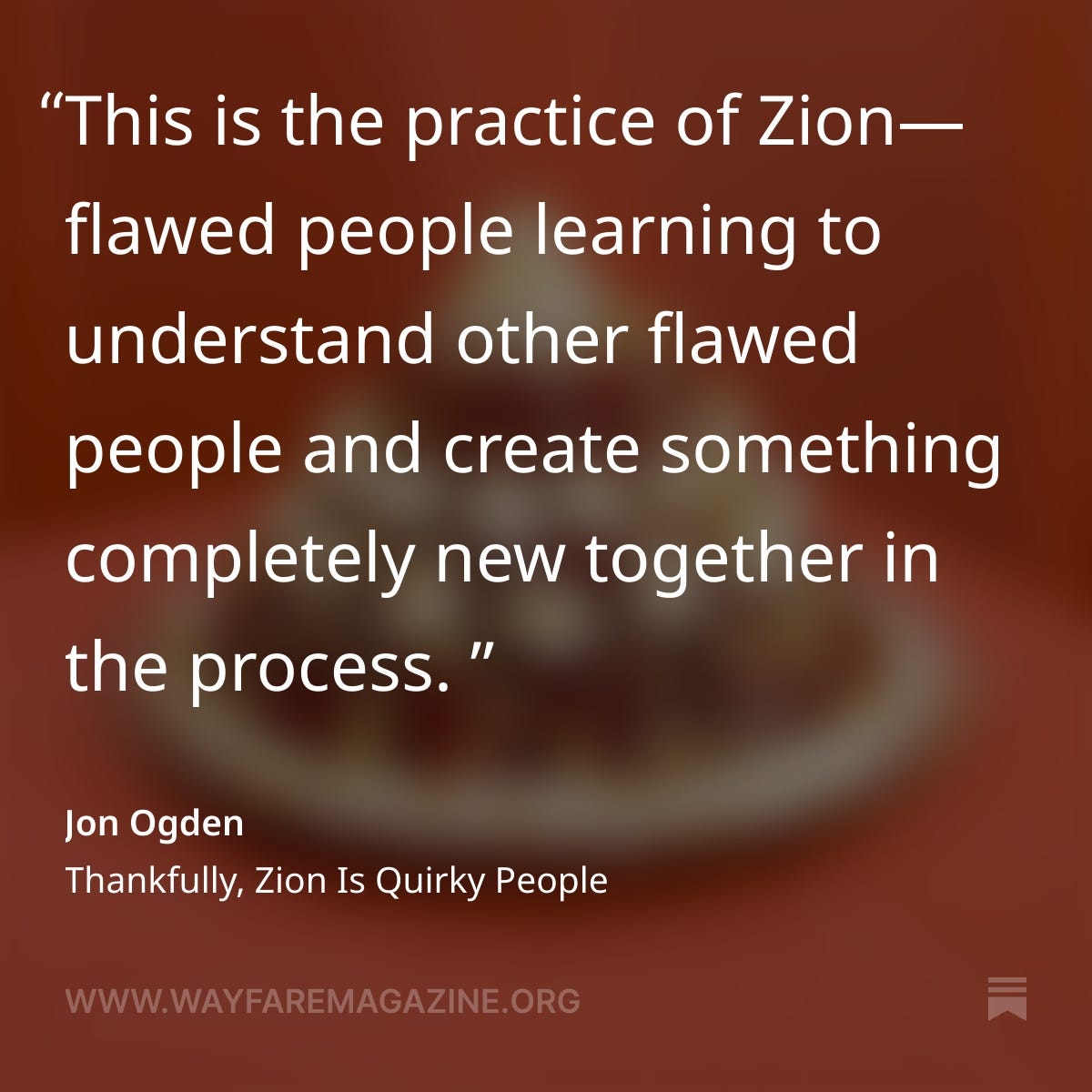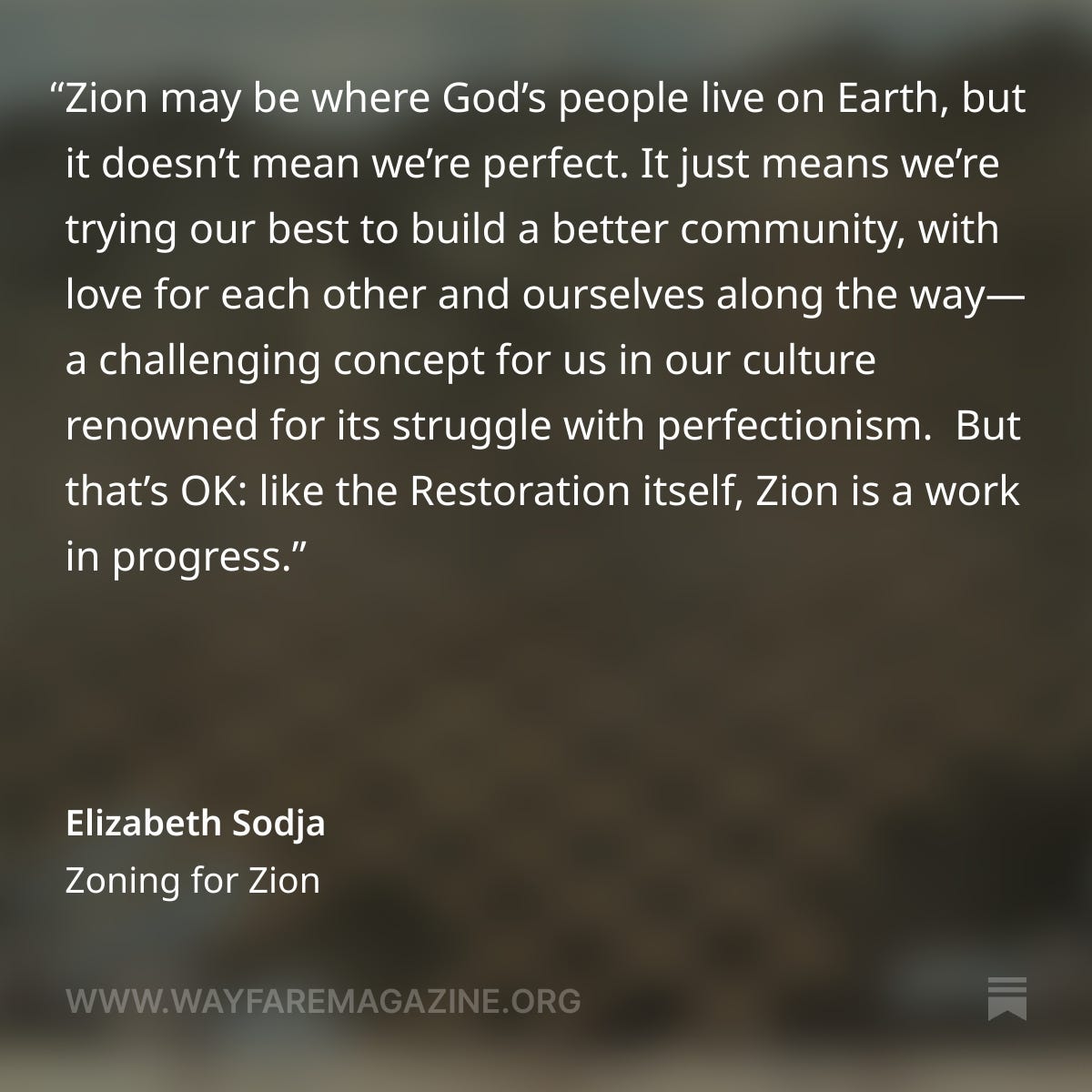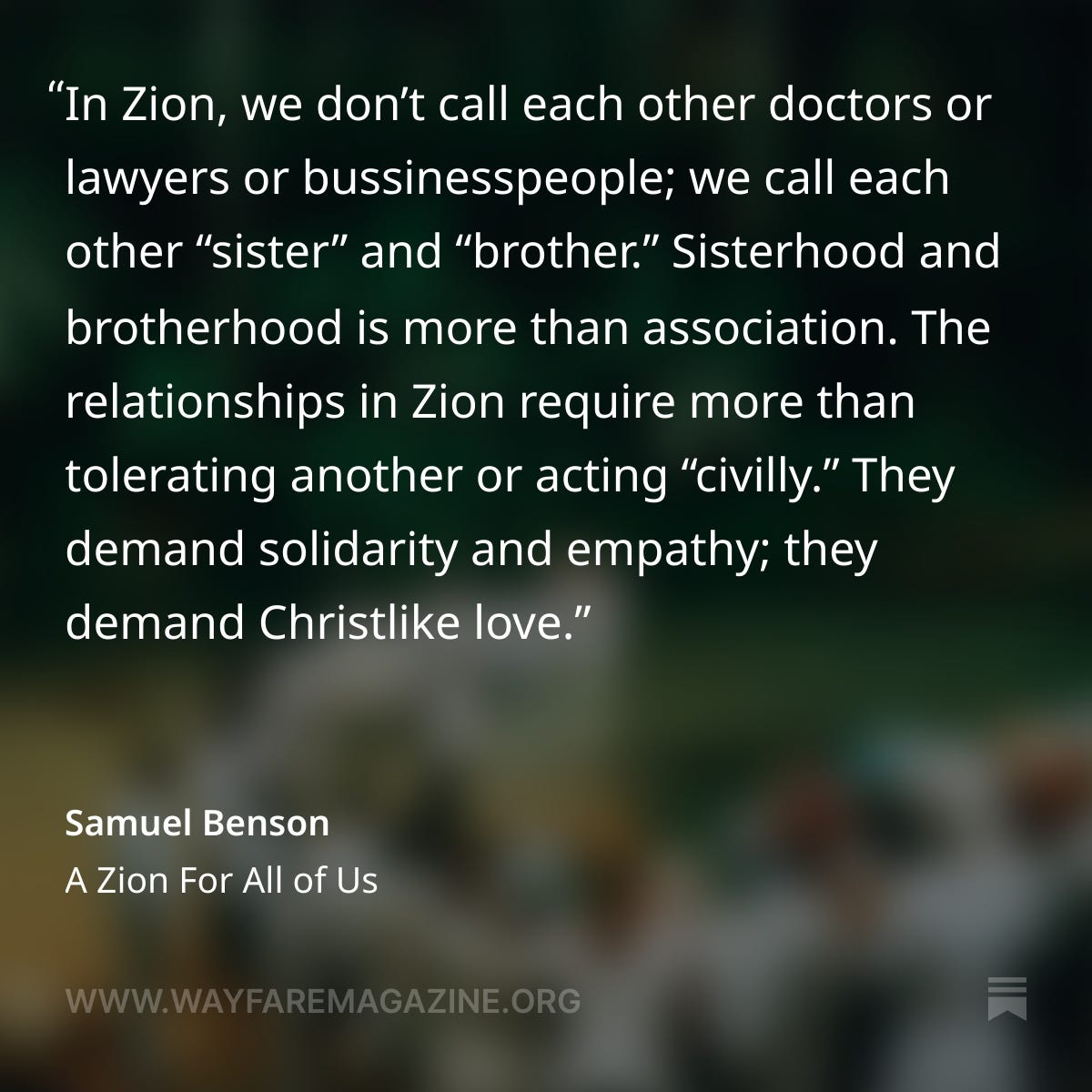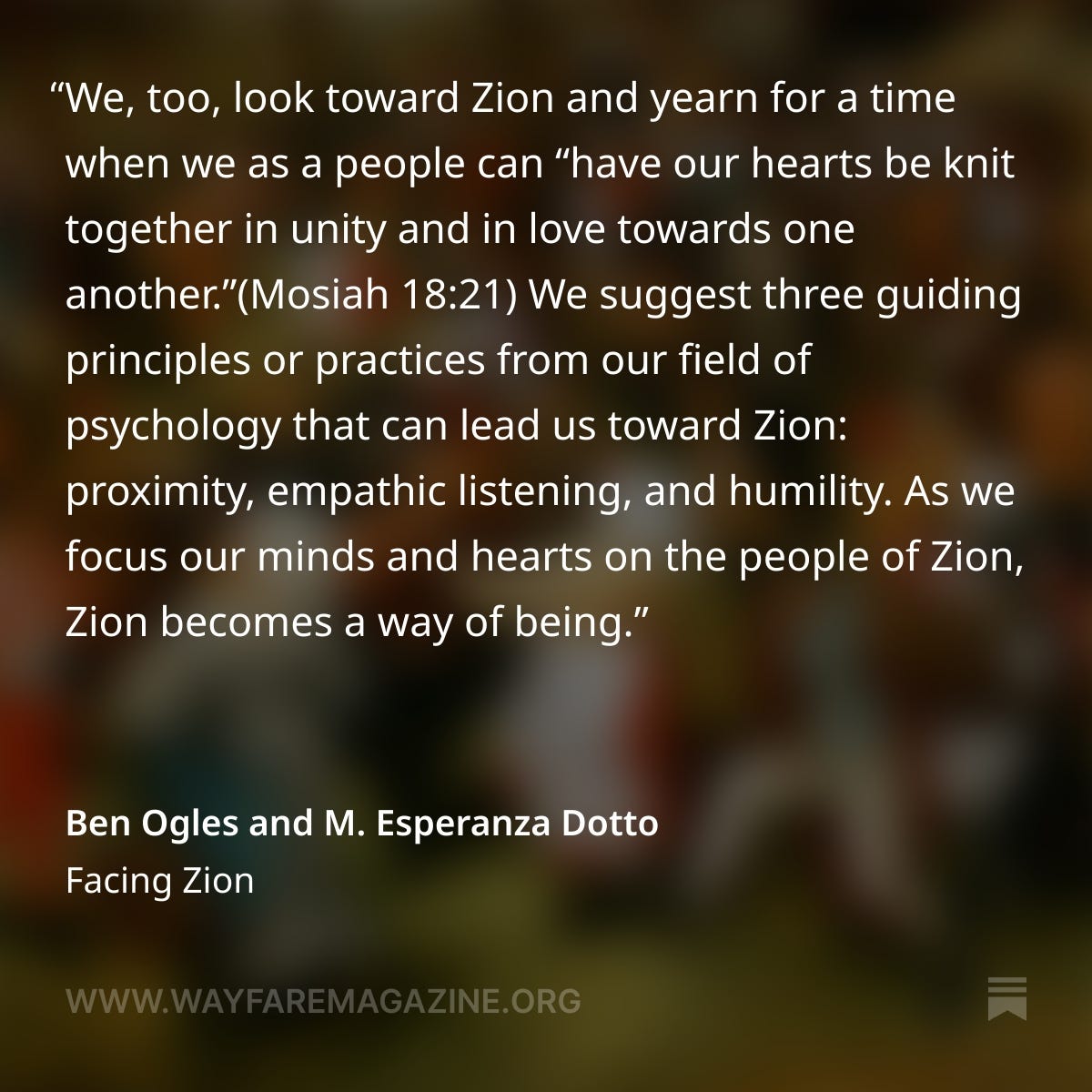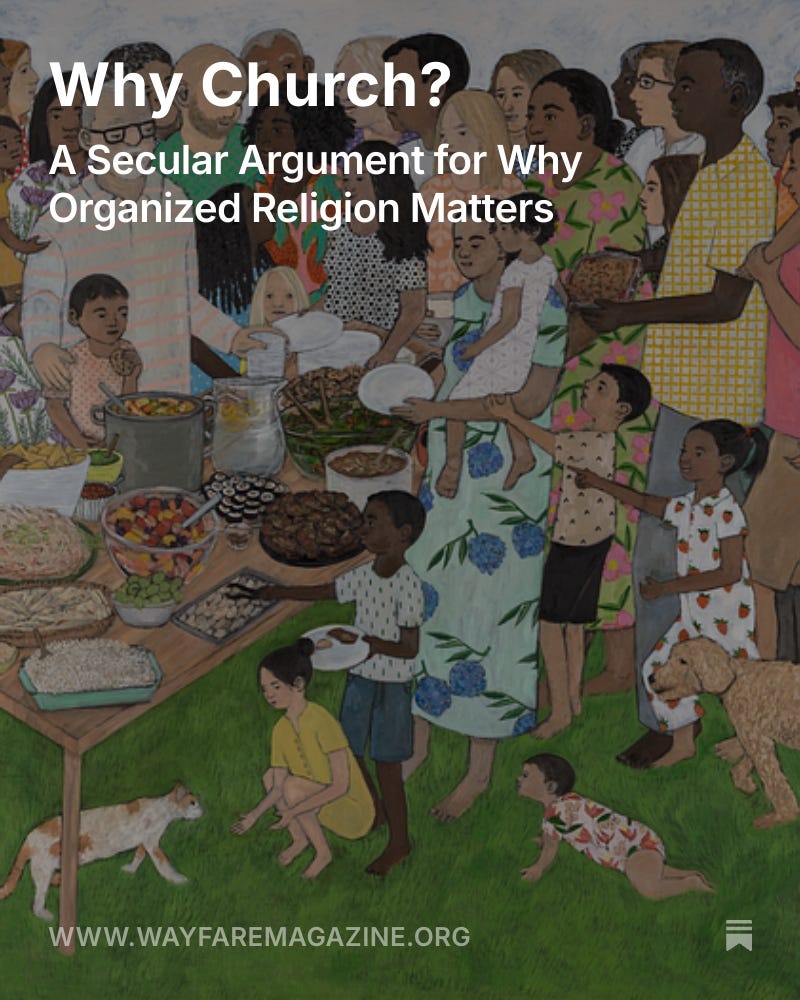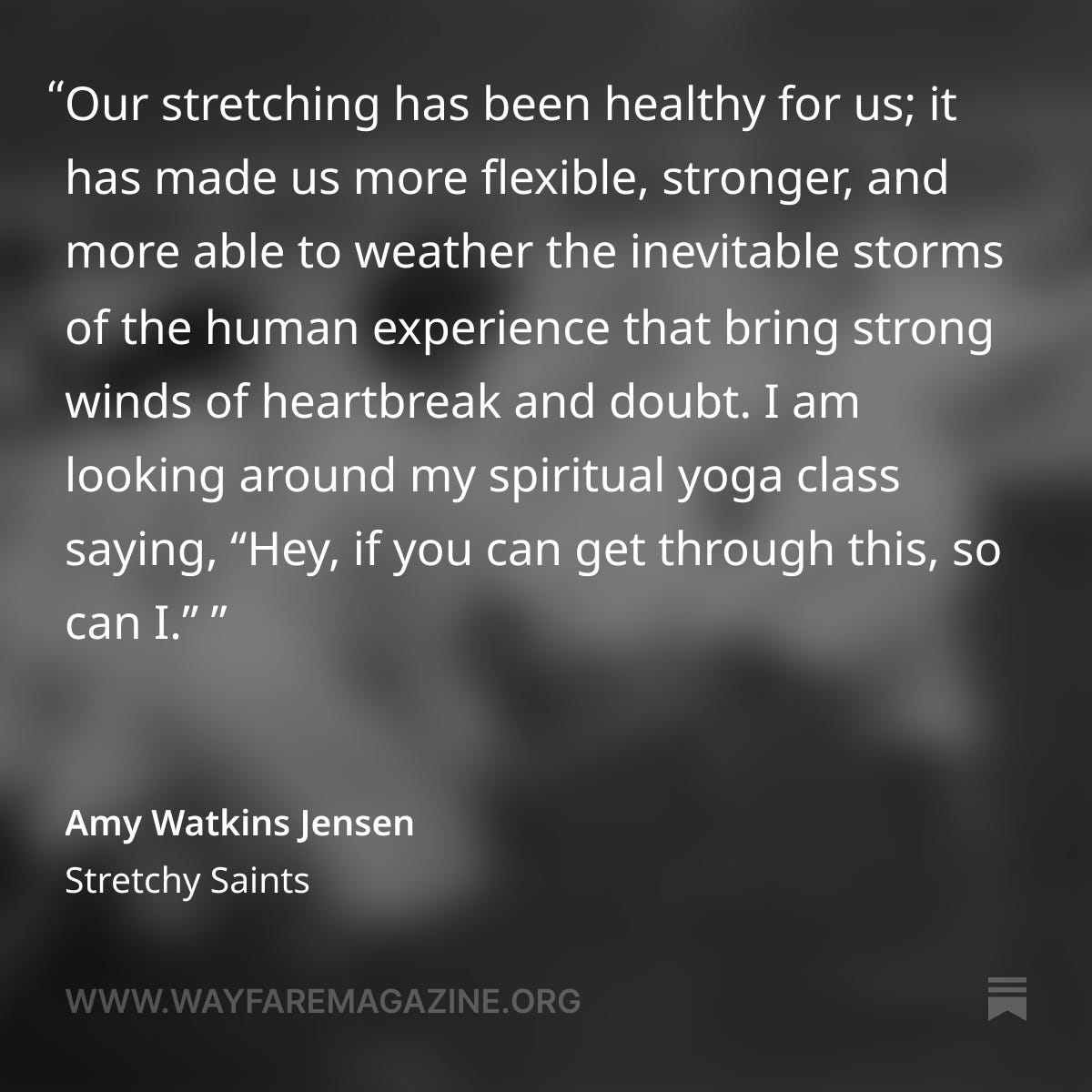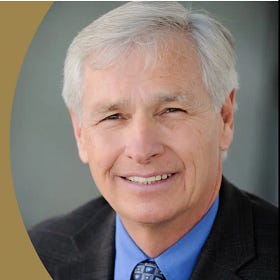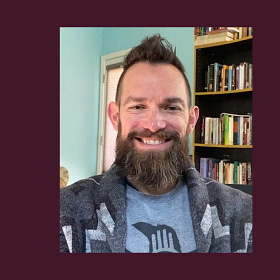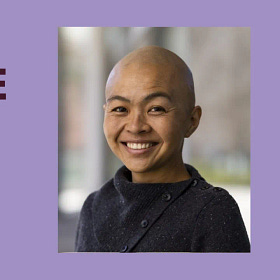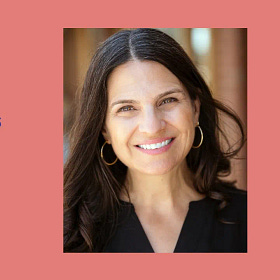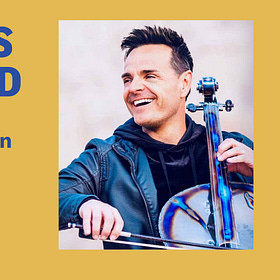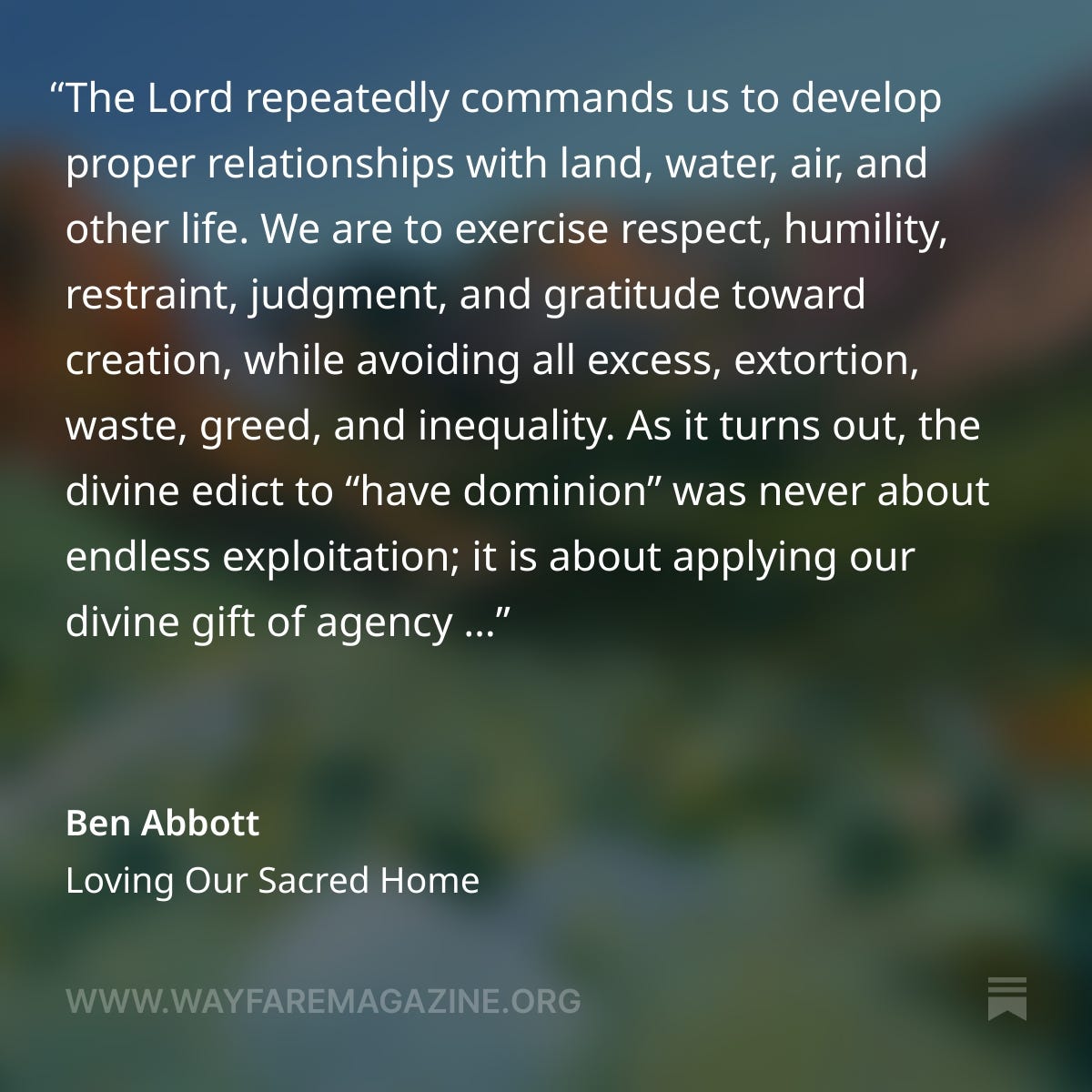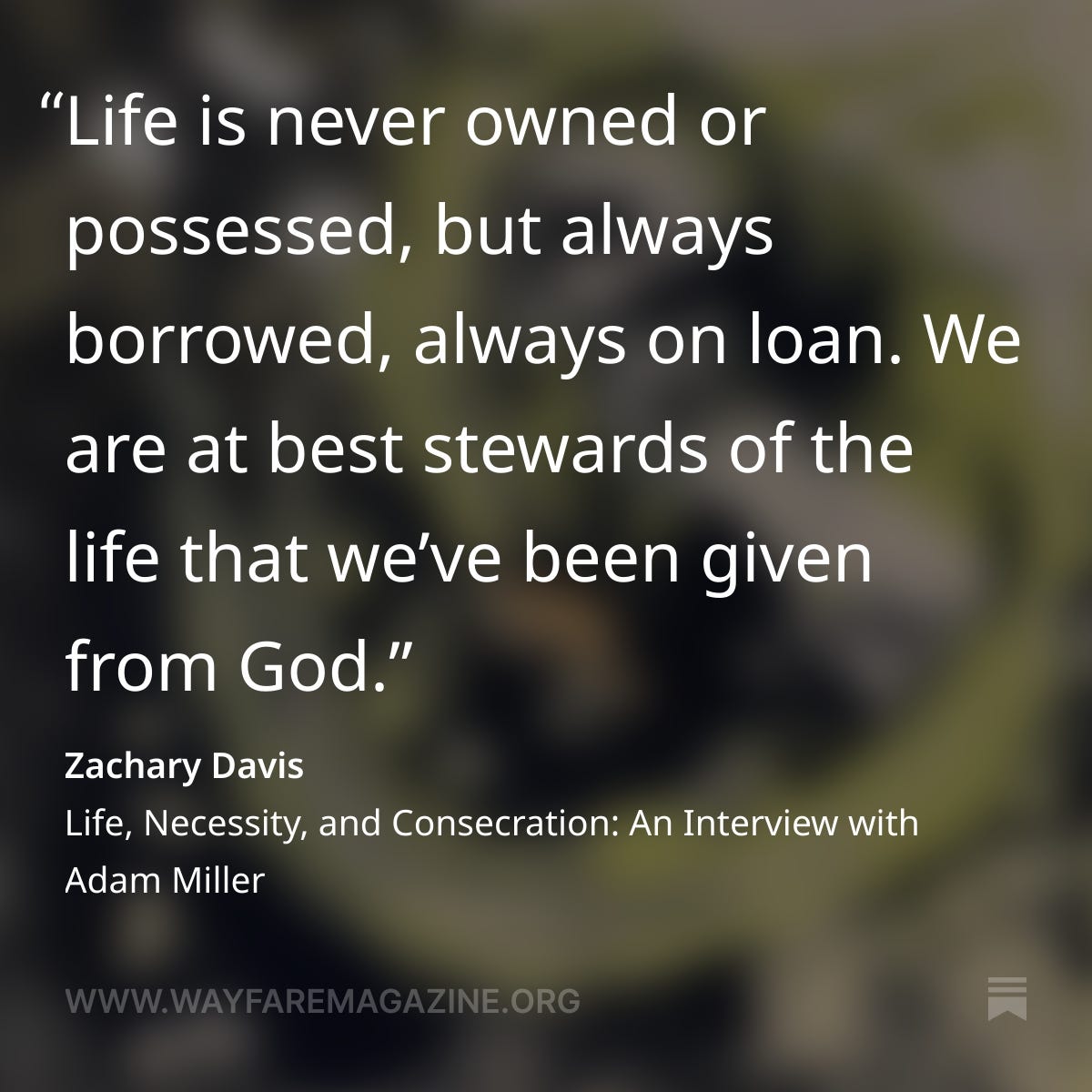How do we become a Zion people?
Faith Matters resources to accompany your Come Follow Me study: September 15-21
Zion can be built only on principles of righteousness.
“We never read or hear about a Zion person, right? It's always a Zion people.”
—Melinda Brown, “One Heart, One Mind: Cultivating a Zion Mindset”
Blessings come after trials of faith. / What is the purpose of trials?
Why Weepest Thou? — A Conversation with S. Michael Wilcox
In this conversation, Brother Wilcox explores the role that trials play in our lives and shared what he’s learned as he’s gone through his own adversities, including the deeply felt loss of his wife, Laurie.
Mike Petrow: The Path of Descent
In one of the most powerful moments of this conversation, Mike describes a moment of profound loss—sitting at his mother’s bedside as she passed away—and then, just hours later, holding his newborn niece for the first time. These moments of symmetry revealed a truth that is at the heart of this entire conversation: that loss, and grief, and pain carve out a space in our hearts that can eventually be filled with love, joy and connection.
Melissa Inouye: Sacred Struggle
In this conversation with Melissa, we deal with struggle itself, but also with its second-order effects: how can struggle be alchemized into connectedness — into Zion — instead of driving us apart? Who gets to assign meaning to struggle? Is there a way to avoid pain in a community, or is it built into the experience?
Sharon Brous: The Amen Effect
In this episode, Rabbi Sharon Brous makes the case that when we sit with each other in “celebration, sorrow, and solidarity,” we are connecting in ways that not only forge deep and lasting relationships, but contribute to a larger healing in our communities and in the world.
Jared Halverson: Don't Let a Good Faith Crisis Go To Waste
In this presentation, Jared shares his experiences as a scholar, teacher, mentor, and person of faith who’s been through — and helped others work through — faith crises and faith journeys of all types. And what we loved about it was he completely removes “fear” from the experience of faith crisis — for Jared, not only is faith crisis “ok,” it’s actually a sacred space that many people have even found necessary for their own continued progress on the path of faith. Tim and I really related to what Jared had to say here, especially because we consider our own faith crises gifts we wouldn’t give up for anything — and Jared honors the “crisis” part of it while pointing to something even more beautiful on the other side.
Steven Sharp Nelson: God Loves Your ADHD
Today we got to talk with Steve about ADHD—his diagnosis as a child, and the way he’s come to understand it not as a disorder, but a spiritual gift that has shaped his creativity, deepened his connection to God, and is helping him live into his divine purpose. Though ADHD began as a source of confusion and shame, he’s come to see it as one of the greatest blessings of his life.
I feel so at home in Jesus Christ’s gospel, not because he’s wiped my slate clean and made me this perfect, pristine daisy. No, I feel at home because he invites me to use my wounds to aid him in what he does best: heal others. When Jesus appeared to the Nephites in America it was his wounds that made the people shout “Hosanna!” Jesus Christ heals just as much through his wounds as he does through his perfection. He asks each of us to do the same. The vulnerability of others, when they bear their wounds to me, has made me feel welcome and whole.
—Louisa Packham, “To Hurt, Heal, and Celebrate it All”
Life can turn really messy and really small and seem utterly disastrous and seem to have no form or function or possibility of a bright future and then, unaccountably, it can still happen.
—Marcus Smith, “Ordinary Stardust”
The Lord has made me a “steward over earthly blessings.” The Lord wants me to share what I have with people in need.
Once we become properly yoked with Jesus, we are expanded and become more than our atomistic selves. We become our brother’s keeper and stewards of all of His creations. The natural world brings gifts without price, recompenses of wonder and elation and solace. I know of no more adequate response to such generosity than devoted, compassionate love for every one of His creatures.
—George B. Handley, “Falling into Paradise”
From what I have seen, American Christians often struggle to understand the logic of grace because it fundamentally differs from the logic of merit that dominates modern life, a logic that is calculative and based on scarcity. In contrast, the logic of grace is un-calculative and based on abundance:
For the earth is full, and there is enough and to spare; yea, I prepared all things, and have given unto the children of men to be agents unto themselves. Therefore, if any man shall take of the abundance which I have made, and impart not his portion, according to the law of my gospel, unto the poor and the needy, he shall, with the wicked, lift up his eyes in hell, being in torment. (D&C 104:17–18)
The logic of grace says there is more than enough to go around unless some start hoarding it all for themselves. If this happens and the logic of accumulation catches hold, the weakest tend to be left out, specifically the widow and the orphan.
…
Grace lives in abundance. If we accepted grace, we would share with others. Accumulating money is the antithesis of grace. Buying large houses while others are homeless is a denial of grace. Wearing expensive clothing while others go hungry is dis-grace-full. Our modern society would have appeared deeply immoral to hunter-gatherers. The same would have been true from the perspective of those described as the happiest “people among all the people who had been created by the hand of God” (4 Nephi 1:16).
Happiness is morally fraught. Meritocratic happiness takes joy and pride in what it has “earned”. It atomizes or individualizes us, telling us that happiness is our own responsibility and that we shouldn’t be jealous of one another. Grace-full happiness, on the other hand, is comparative. It doesn’t mind its own business. It looks to the neighbor, the stranger, the migrant, and asks if they are happy. Since “it is not given that one man should possess that which is above another, wherefore the world lieth in sin” (D&C 49:20), happiness must be communal and we must be “equal in all things.”
—Justin Pack, “The Dis-grace-full Logic of Merit”
The courtyard offers itself as a canvas for connection and exchange. Residents donate toys to the courtyard and kids play with them freely. We learn that all this abundance belongs to everyone. I’ve stopped buying any new toys, knowing our children have dozens of toys just outside our back door, thousands if you count the blades of grass and sticks and gopher holes they also play with. My kids learn that the world is theirs, and that it is also everybody else’s. They take home a toy from the courtyard, and then we bring it back. For his birthday, my son asked for new batteries to replace the ones in the broken toys outside, and then we spent the day unscrewing the neighborhood toys and replacing their batteries.
—Lindsey Meservey, “All Things Common Among the Courtyard”



